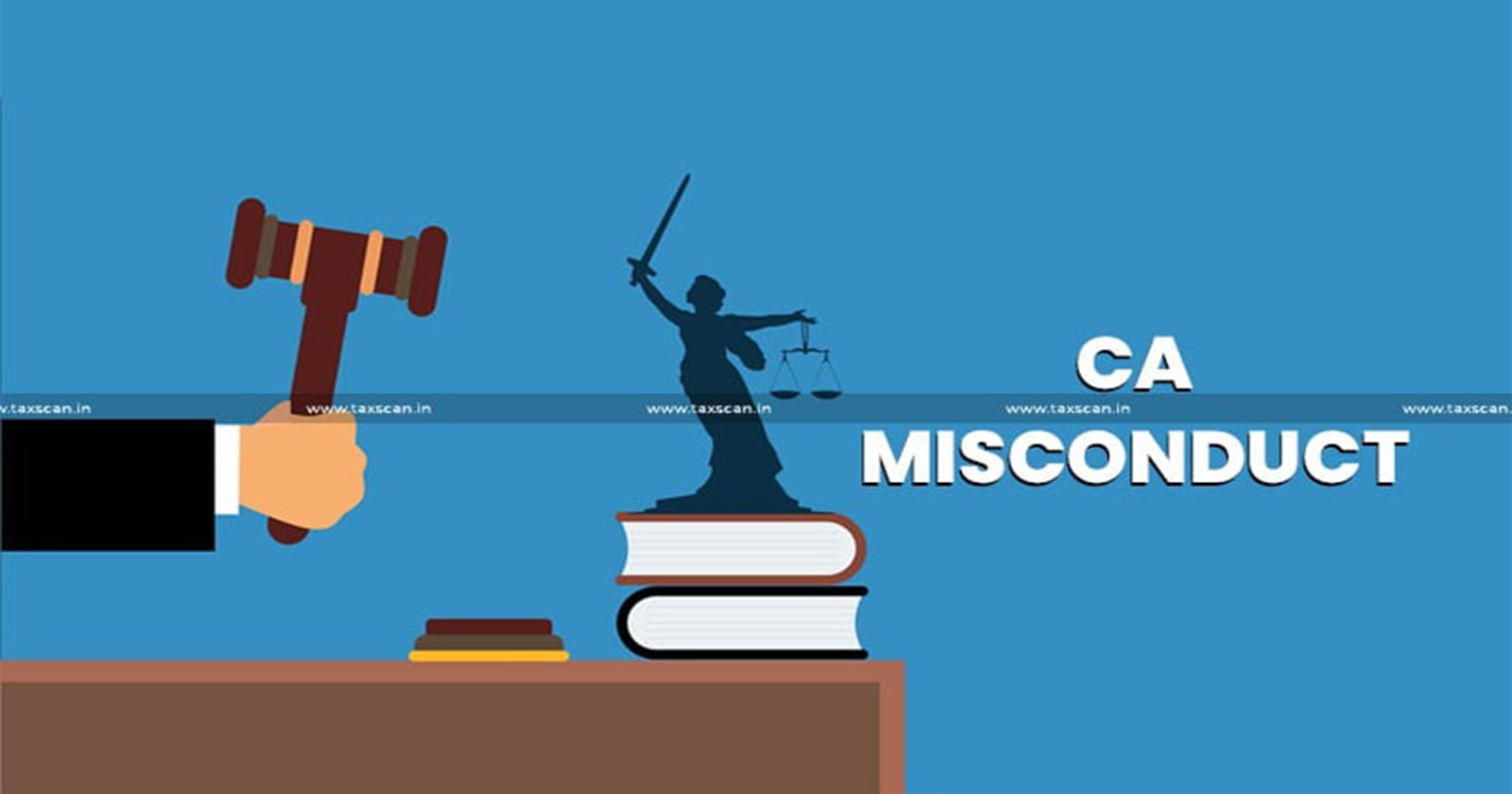CA Misconduct: Supreme Court dismisses Decade Old Challenge, upholds Referral Powers of ICAI Board of Discipline
Supreme Court dismisses a decade old case against referral powers of board of discipline

CA Misconduct – Supreme Court – Referral Powers – ICAI Board of Discipline – taxscan
CA Misconduct – Supreme Court – Referral Powers – ICAI Board of Discipline – taxscan
A Two-Judge Bench of the Supreme Court has dismissed a challenge to a rule that enables the Institute of Chartered Accountants of India ( ICAI ) Board of Discipline to refer a complaint for misconduct to the ICAI Disciplinary Committee, even when the Director (Discipline) opines that the accused person/firm is not guilty, and also allows the Director to conduct further investigation.
This Rule 9(3)(b), within the Chartered Accountants' (Procedure of Investigation of Professional and Other Misconduct and Conduct of Cases) Rules, 2007, enables the Board of Discipline, ICAI to refer a complaint even when the Director (Discipline) opines that the accused person/firm is not guilty, and also allows the Director to conduct further investigation.
This legal matter stemmed from an appeal against a Delhi High Court order that rejected a challenge to Rule 9(3)(b) as ultra vires of Section 21A (4) of the Chartered Accountants' (Amendment) Act, 2006.
The case involved a complainant-Bank raising concerns about suspicious transactions during an audit conducted by the appellant's firm. The Director (Discipline) initially found the appellant not guilty of professional or other misconduct. However, the Board of Discipline, disagreeing with the Director's opinion, decided to refer the case to the ICAI Disciplinary Committee. The appellant contested this decision, leading to a legal battle.
The appellant argued that the Board exceeded its authority by referring the matter to the Disciplinary Committee, claiming that such action was not substantively supported by the Act. The impugned Rule, being a form of delegated legislation, was challenged on the grounds that it couldn't allow for actions not envisioned in the Act.
The Apex Court revisited the rules as follows —
“Section 21(1) empowers the Council to establish a Disciplinary Directorate for making investigations into the complaints received by it. The head of this authority is designated as Director (Discipline).
Section 21(2) provides that the Director (Discipline), on receipt of any information or complaint, shall arrive at a prima facie opinion on the occurrence of the alleged misconduct.
Section 21(3) states that should the Director (Discipline) arrive at a prima facie opinion that the member is guilty of professional misconduct, he shall refer the matter to the Board of Discipline or the Disciplinary Committee, depending on whether the alleged misconduct falls within the First Schedule or the Second Schedule or both.
If the alleged misconduct falls within the First Schedule, the matter is placed before the Board of Discipline and if it falls within the Second Schedule or in both the Schedules, the matter is placed before the Disciplinary Committee. Section 21(4) provides that the procedure for investigation would be as prescribed under the relevant rules.
In the event where the Complainant wishes to withdraw his/her complaint, Section 21(5) provides that the Director (Discipline) shall place the request for withdrawal before the Board of Discipline or the Disciplinary Committee, as the case may be, and the Board or Committee would take a final call in this regard.”
The Supreme Court, after reviewing the case, in agreement with the respondents- Institute and Others, stated that accepting the appellant's argument would grant the Director greater powers than the Board.
The court emphasized the need for the Board to be able to override the Director's prima facie opinion. It highlighted that the Act aims to prevent professional misconduct and uphold honesty, integrity, and professionalism in chartered accountancy practice.
The Bench of Justice PS Narasimha and Justice Aravind Kumar observed that, "The Director (Discipline) who functions as a secretary to the Board of Discipline as per Section 21A (2) will be having greater powers than the Board itself. The ‘prima facie’ opinion of the Director will become nothing but a final opinion if the Board will have no option except to direct the Director (Discipline) to further investigate the matter."
It was thus held that, “Therefore, even if we accept, for the sake of argument, that Rule 9(3) cannot be saved under Section 29A(2)(c), as it directly relates to furthering the purposes of the Act in ensuring that a genuine complaint of professional misconduct against the member is not wrongly thrown out at the very threshold, it can be easily concluded that the impugned Rule falls within the scope of the general delegation of power under Section 29A(1).”
To Read the full text of the Order CLICK HERE
Support our journalism by subscribing to Taxscan premium. Follow us on Telegram for quick updates


